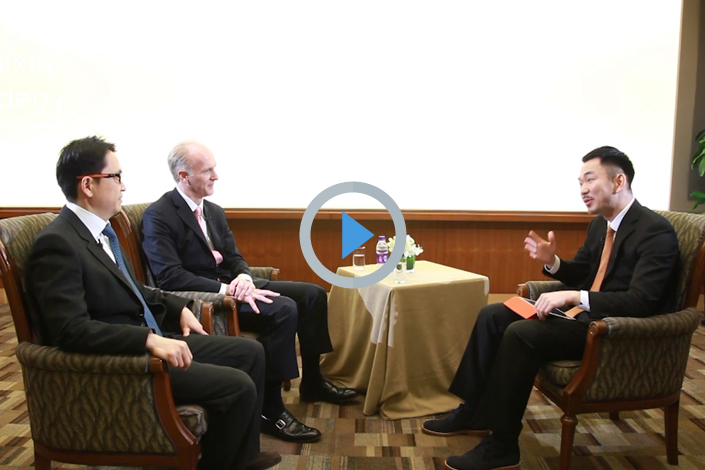Chinese Firms More Long-Term Focused Than Global Peers, Report Finds

In recent years, a debate has grown in China over so-called corporate long-termism — the idea that companies should fight the tendency to focus on immediate returns and instead strategize for the long term.
It is within this context that Caixin Global Intelligence compiled a report commissioned by the Canada Pension Plan Investment Board (CPPIB) and Hillhouse Capital, titled “Understanding Perspectives on Long Term Value Creation in China.” The report focuses on the long-term strategies of Chinese companies and how they differ from those of their global peers.
The companies surveyed include more than 180 large publicly listed firms, representing 28 industries, with a total market capitalization of $2.4 trillion.
After the report was released, Caixin spoke with Mark Machin, president and CEO of CPPIB, and Zhang Lei, founder and CEO of Hillhouse Capital.
Machin argued that Western companies often succumb to short term pressures, which he called problematic. Zhang noted that Chinese companies are learning how to use capital effectively in the long term.
Quoting the report, Machin said he is pleased to see that only 18% of Chinese companies say they would decline a project with long term benefits but a negative short-term impact, while nearly half Western companies said they would do so.
Zhang also pointed out that Chinese companies are increasingly having an impact abroad without necessarily going overseas themselves — a phenomenon he called “innovation from China.”
Even internet companies, which are notoriously susceptible to short-term competition, are planning for the long term and reinvesting revenue, Manchin argued.
To promote long-termism in China, companies need to focus on technology, capital allocation, talents and organization, Zhang said. Many private Chinese companies are founder-driven, and although this can be beneficial, these firms still need to plan for their eventual leadership transition and for new talents to take over.
Going forward, Machin thinks education will help close the “digital gap” created by the widening income disparity of the internet age. Zhang agreed, adding that Hillhouse is cooperating with top Chinese universities on programs to foster critical thinking. Both see education as a driver of long term benefits.

- 1China Officials Dismiss Tax Hike Rumors After Tech Selloff
- 2Cover Story: How Gutter Oil Became a Prized Fuel for International Airlines
- 3Prominent Chinese Journalist Liu Hu Detained by Police in Chengdu
- 4Maersk Unit Takes Over CK Hutchison Panama Ports After Court Ruling
- 5China Provinces Set Cautious 2026 Growth Targets
- 1Power To The People: Pintec Serves A Booming Consumer Class
- 2Largest hotel group in Europe accepts UnionPay
- 3UnionPay mobile QuickPass debuts in Hong Kong
- 4UnionPay International launches premium catering privilege U Dining Collection
- 5UnionPay International’s U Plan has covered over 1600 stores overseas




